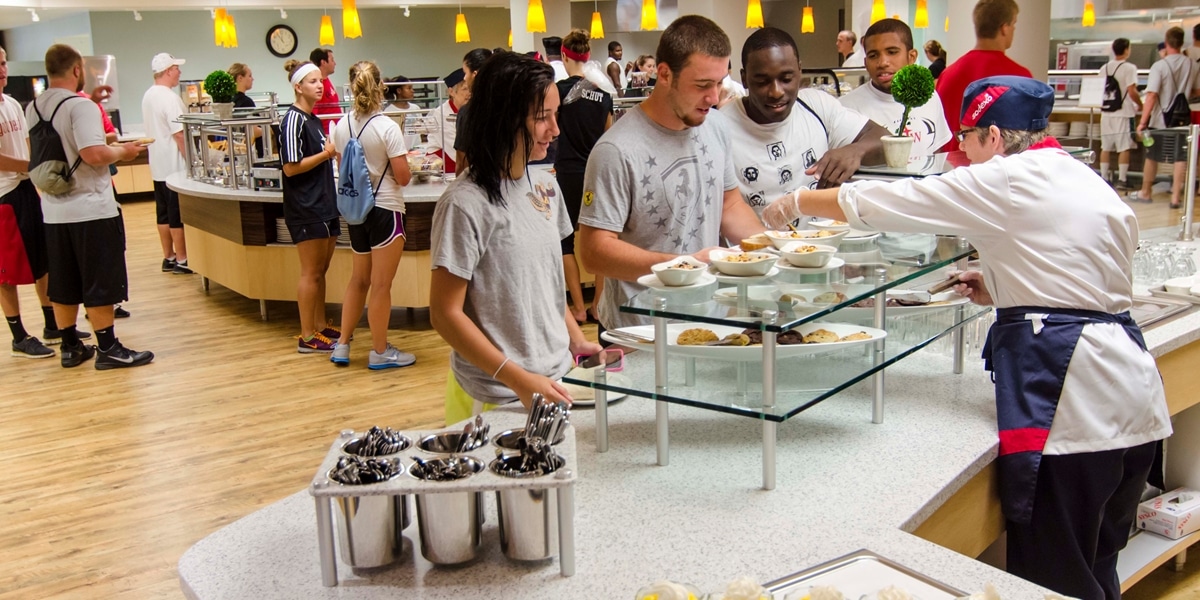In the fast-paced modern world eating out is no longer simply a meal. It’s transformed into an experience and a reflection on society, and an integral part of the local community. The transformation wouldn’t be possible without the crucial role of food service businesses.
Foodservice companies, also referred to as food service companies are a variety of entities which cater to diverse demands for food in different sectors. From corporate offices to educational institutions, healthcare establishments to entertainment facilities, these firms are the unnoticed heroes who orchestrate gastronomic symphonies behind the scenes. For more information, click contract food service companies

The business of contract food service is an important segment of this industry. They are culinary experts who specialize in providing turnkey food solutions to institutions and businesses. They collaborate closely with clients to develop menus specifically tailored to the preferences and dietary needs of each restaurant. Food service companies contracted by contract are also responsible for the efficient execution of the food, making each meal a memorable occasion.
Let’s take a deeper look at the roles of contractors for food services by putting ourselves in their roles. They are similar to culinary architects, conceiving and constructing the base of dining experiences. These experts handle the complicated tasks involved in procuring ingredients, making meals, and serving them, with a focus on quality and safety standards. Food service providers are masters of adaptability capable of tailoring their craft to suit a corporate environment or a health care facility with the same utmost precision.
Food service management companies work in conjunction with contractors. Imagine them as conductors, orchestrating different elements to create an enthralling culinary experience. They take on their role in a broad sense, not only curating menus but also handling the operational intricacies. Food service management firms perform a show that is choreographed in the background. From maintaining hygiene to adhering regulations to staffing, they handle their inventory, ensure hygiene and abide by regulations.
In the tapestry made by food service providers cafeterias form an essential thread. Cafeterias are more than just places to take a bite. They’re often found at the core of many institutions. They’re places where conversations are abound, friendships flourish, and ideas percolate. Cafeterias aren’t eating places; they are also places that allow people to gather and share their thoughts. They offer a wide selection of delicacies from the kitchen that appeal to a wide array of palates.
Food service firms are setting the standard in an age in which convenience and quality are essential. They’ve used technology to simplify ordering processes as well as enhance the customer experience and ensure that diners’ preferences are met with accuracy. These companies have adopted technological advancement in many ways, such as the online ordering process, touchless payment and custom meal plans.
The social responsibility of food service businesses should not be undervalued. They are eco-friendly since they focus on sustainability and ethical procurement. They’re committed to enticing the palate while making sure that we are not a burden on the planet.
Food service companies are an amalgamation of culinary innovation connecting with people, as well as culinary expertise. The care and attention to detail of contract-based service companies as well as the orchestration skills of food management companies contribute to making memorable dining experiences. Cafeterias, that combine the elements of community and nourishment, provide warmth to any establishment. As these businesses continue develop, taking on technology and sustainability as they establish themselves as architects of delightful eating experiences, ensuring that each bite is a tale of compassion, innovation, and community.